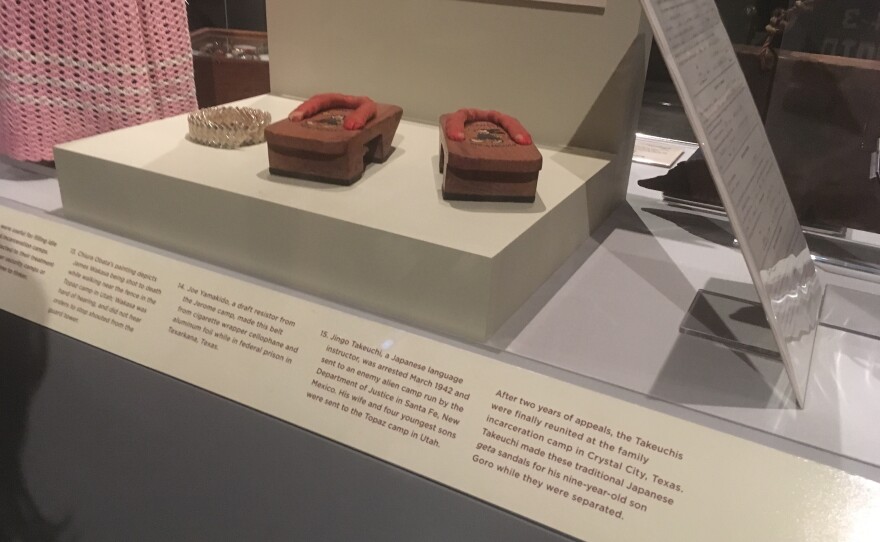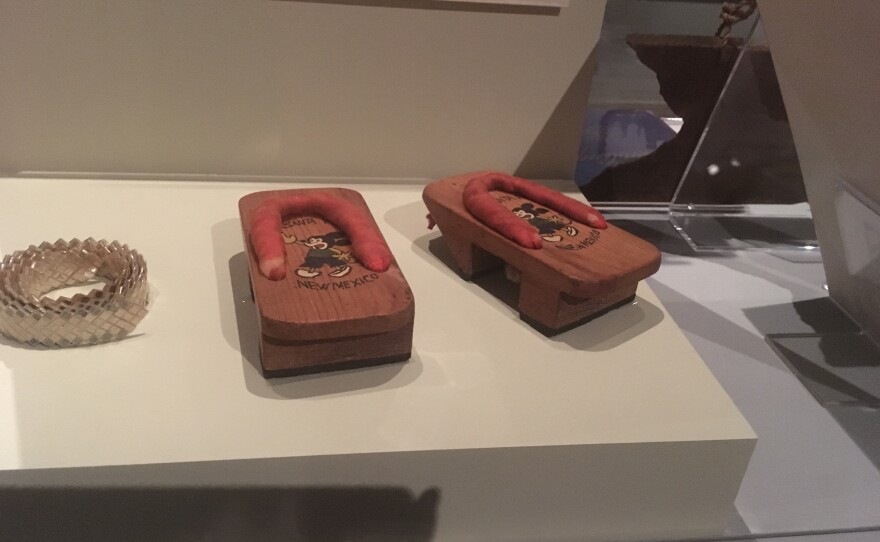This is a story about a pair of sandals.
They aren’t just any sandals. To a Santa Barbara man, they are the symbols of an unjust ordeal his family went through 75 years ago, an ordeal they faced just because of their Japanese ancestry.
Now those sandals are in Washington, D.C. at the Smithsonian Institution, as is Mike Takeuchi, whose grandfather made them, and whose father owned them.
The story of the sandals begins in the days following the Japanese attack on Pearl Harbor. Fear of a West Coast invasion coupled with racism led to President Franklin Roosevelt signing an executive order which resulted in the illegal round up of people of Japanese ancestry. Takeuchi’s grandfather, Jingo, and grandmother Kiwa were living in the Bay Area. He was a Japanese language teacher, who also taught some martial arts classes on the side.
After the attack on Pearl Harbor, a university professor reported Jingo to the FBI, and after questioning, he was shipped to a camp for what were considered security risk detainees in New Mexico. His grandmother, Kiwa and five of their sons were also forced to leave their Bay Area home, and were taken to an internment camp in Utah.
The family started a letter writing campaign to try to convince authorities that Jingo wasn’t a high risk detainee. After two years of effort, they convinced authorities that he wasn’t a threat, and in 1944, he was reunited with his wife, and children and an internment camp in Crystal City, Texas.
While in confinement, Jingo had somehow collected the material to make a special gift for his son, Goro, who would later become Mike Takeuchi’s father. They were a pair of handmade, elaborately decorated sandals. He used rubber from old tires for their soles, and hand painted Mickey Mouse on the wooden sandals.
The joy of being reunited turned out to be short lived.
The stress of the separation and of caring for five sons by herself caught up with Kiwa. She died at the Texas camp where the family was living two months after the end of the war. The heartbroken family lived in the Texas camp until 1946, and returned to California.
Takeuchi’s father, Goro, and his brother, Mamo, moved to Santa Barbara, where they owned and operated gas station for more than four decades. Mike Takeuchi says his father didn’t talk about his wartime experiences, and held the anger and sadness inside of him.
He says they had a rough childhood, and their father was hard on them, but in the final years before his death two years ago, Takeuchi made peace with his father. He opened up about some of his painful childhood memories of living in the internment camps, and losing his mother while he was just 11.
After his father died in 2015, Takeuchi says they found the sandals among the possessions in his dad’s house. He decided he wanted to do something special with them, but wasn’t sure what at the time. He then learned that the Smithsonian was collecting items for a new exhibition called “Righting a Wrong: Japanese Americans and World War II.” He donated the sandals to the Smithsonian for the exhibition.
The Santa Barbara man and his wife traveled to Washington, D.C. for the official opening of the Smithsonian exhibition featuring the sandals, at the National Museum of American History.
Takeuchi feels the exhibition is important, because many people don’t know about this part of our past. He says given some of the events happening in the world today, it’s more important than ever to learn the lesson from this sad piece of America’s history.









